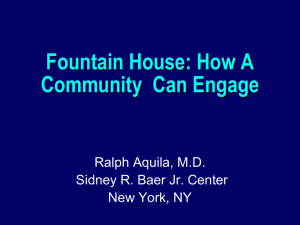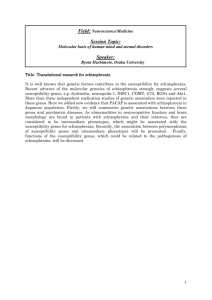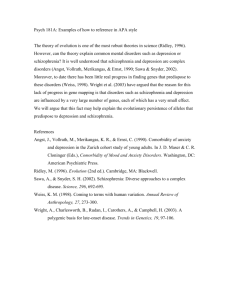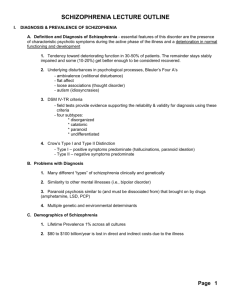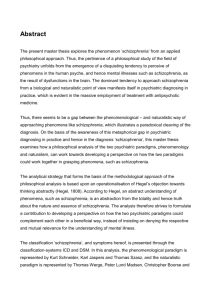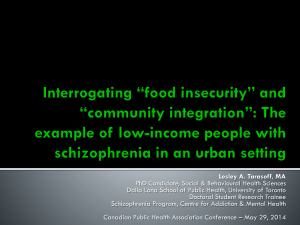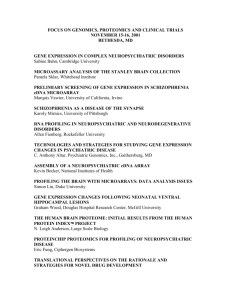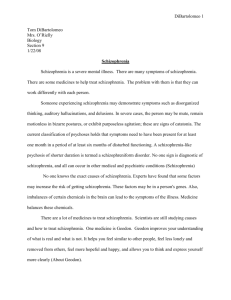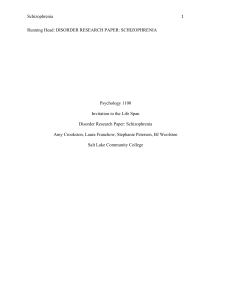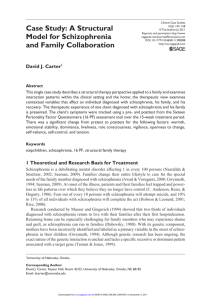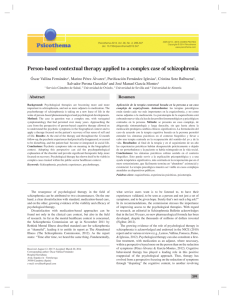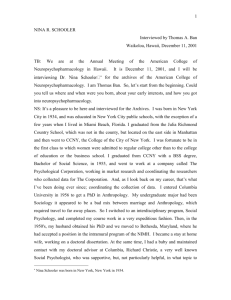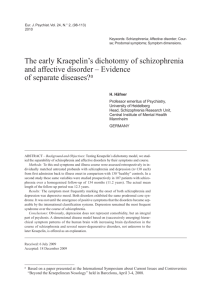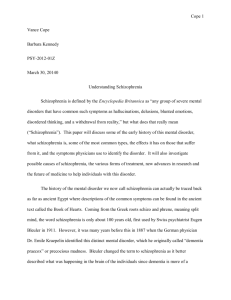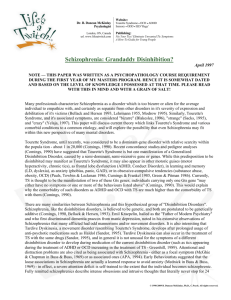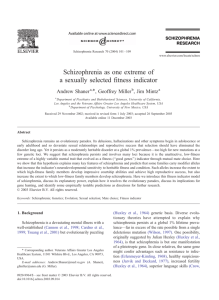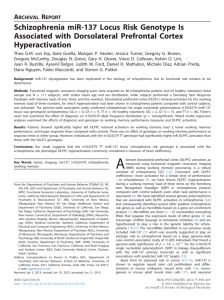Schizophrenia Myths - California State University, Northridge
advertisement
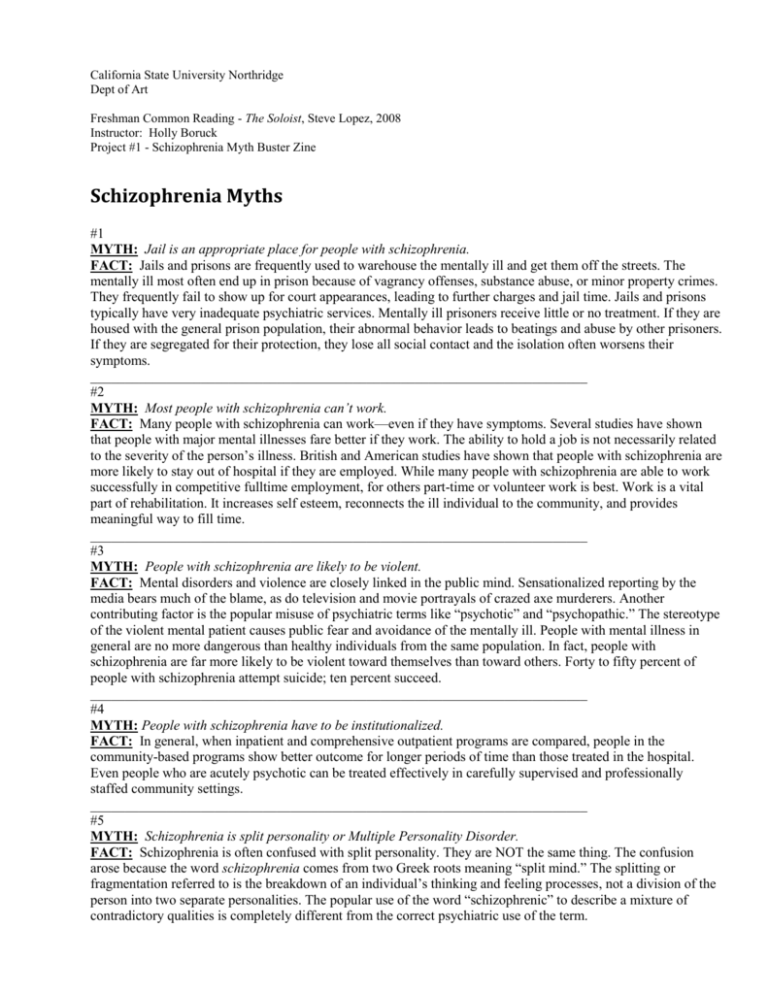
California State University Northridge Dept of Art Freshman Common Reading - The Soloist, Steve Lopez, 2008 Instructor: Holly Boruck Project #1 - Schizophrenia Myth Buster Zine Schizophrenia Myths #1 MYTH: Jail is an appropriate place for people with schizophrenia. FACT: Jails and prisons are frequently used to warehouse the mentally ill and get them off the streets. The mentally ill most often end up in prison because of vagrancy offenses, substance abuse, or minor property crimes. They frequently fail to show up for court appearances, leading to further charges and jail time. Jails and prisons typically have very inadequate psychiatric services. Mentally ill prisoners receive little or no treatment. If they are housed with the general prison population, their abnormal behavior leads to beatings and abuse by other prisoners. If they are segregated for their protection, they lose all social contact and the isolation often worsens their symptoms. ________________________________________________________________________ #2 MYTH: Most people with schizophrenia can’t work. FACT: Many people with schizophrenia can work—even if they have symptoms. Several studies have shown that people with major mental illnesses fare better if they work. The ability to hold a job is not necessarily related to the severity of the person’s illness. British and American studies have shown that people with schizophrenia are more likely to stay out of hospital if they are employed. While many people with schizophrenia are able to work successfully in competitive fulltime employment, for others part-time or volunteer work is best. Work is a vital part of rehabilitation. It increases self esteem, reconnects the ill individual to the community, and provides meaningful way to fill time. ________________________________________________________________________ #3 MYTH: People with schizophrenia are likely to be violent. FACT: Mental disorders and violence are closely linked in the public mind. Sensationalized reporting by the media bears much of the blame, as do television and movie portrayals of crazed axe murderers. Another contributing factor is the popular misuse of psychiatric terms like “psychotic” and “psychopathic.” The stereotype of the violent mental patient causes public fear and avoidance of the mentally ill. People with mental illness in general are no more dangerous than healthy individuals from the same population. In fact, people with schizophrenia are far more likely to be violent toward themselves than toward others. Forty to fifty percent of people with schizophrenia attempt suicide; ten percent succeed. ________________________________________________________________________ #4 MYTH: People with schizophrenia have to be institutionalized. FACT: In general, when inpatient and comprehensive outpatient programs are compared, people in the community-based programs show better outcome for longer periods of time than those treated in the hospital. Even people who are acutely psychotic can be treated effectively in carefully supervised and professionally staffed community settings. ________________________________________________________________________ #5 MYTH: Schizophrenia is split personality or Multiple Personality Disorder. FACT: Schizophrenia is often confused with split personality. They are NOT the same thing. The confusion arose because the word schizophrenia comes from two Greek roots meaning “split mind.” The splitting or fragmentation referred to is the breakdown of an individual’s thinking and feeling processes, not a division of the person into two separate personalities. The popular use of the word “schizophrenic” to describe a mixture of contradictory qualities is completely different from the correct psychiatric use of the term.
